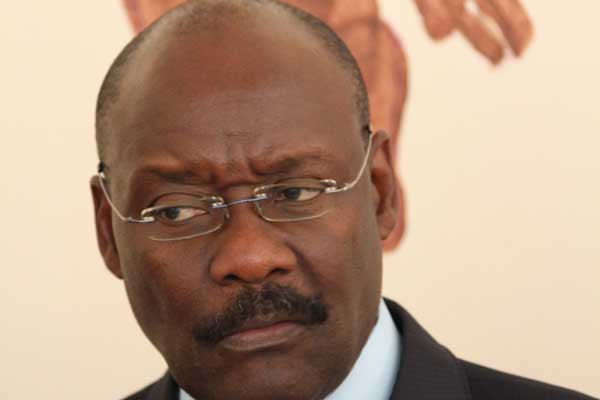
Health and Child Care minister David Parirenyatwa says HIV prevention remains Zimbabwe’s number one priority and has assured the nation that the government will continue playing its part in pursuit of the 90 by 90 by 90 by 2020 targets.
By NAC COMMUNICATIONS DEPT
In his recent state of the nation address on HIV and Aids in Zimbabwe, Parirenyatwa said government would explore various ways and mechanisms, including sustainable financing, to enhance the national response to HIV and Aids.
“May I reiterate that in pursuit of ‘closing the tap of new infections’, government will prioritise and scale up high impact HIV prevention services, with a particular focus on most at risk and key affected populations, including sex workers, youths, prisoners and cross border truck drivers, as well as adolescents and young women as enunciated in the HIV Prevention Roadmap,” he said.
He said ending Aids by 2030 was a commitment that required adequate funding, particularly domestic resources.
“Sadly, our response remains fatigued by limited internal and external resources. We have to be innovative in unlocking potential for sustainable domestic resources to support the national response. We have done commendably well with the National Aids Trust Fund, [Aids Levy], but it remains inadequate to meet the entire burden of the national response,” he said.
“In line with government policy, 50% of the Aids Levy goes towards treatment. Although largely dependent on economic performance, I am glad that the levy has grown over the years and now supports the provision of antiretroviral therapy to over 232 000 people. In addition to this, it has also supported various community-driven HIV prevention interventions.”
Zimbabwe has recorded a decrease in the number of people dying due to Aids from over 3 000 per week in 2004 to less than 900 deaths per week in 2015. Parirenyatwa attributed this to the rapid expansion of treatment services over the years.
- Chamisa under fire over US$120K donation
- Mavhunga puts DeMbare into Chibuku quarterfinals
- Pension funds bet on Cabora Bassa oilfields
- Councils defy govt fire tender directive
Keep Reading
“The expansion of treatment is also helping in closing the tap of new infections as people who are stable on treatment have low viral loads and therefore have less chances of transmitting HIV,” he said.
Parirenyatwa acknowledged that the ministry on its own would not have achieved any meaningful results in the response to HIV.
“I must commend the stakeholders and partners whom we work with for helping the Ministry of Health and Child Care to decentralise treatment to 1 600 health centres across the country,” he said.
He bemoaned the fact that there were still people in Zimbabwe who did not know their HIV status.
“The challenge is now to motivate the over 470 000 people who do not know their HIV status yet they need to be put on treatment. I am confident that through the recently adopted ‘test and treat’ approach, all these people will be identified, tested and placed on treatment to improve their quality of life. I am therefore appealing to all viewers and listeners to get tested so that if HIV-positive, they access treatment. At the same time, I want to encourage those who are HIV-negative to remain HIV-negative.”
According to the Zimbabwe Population-based HIV Impact Assessment, new HIV infections have dropped from over 82 570 in 2009 to an estimated 42 314 this year.
Parirenyatwa said Zimbabwe’s success HIV story was a result of the comprehensive combination of high impact HIV prevention interventions, which included HIV testing services, prevention of mother to child infection, condom promotion and distribution, treatment as prevention, behaviour change and voluntary medical male circumcision.











